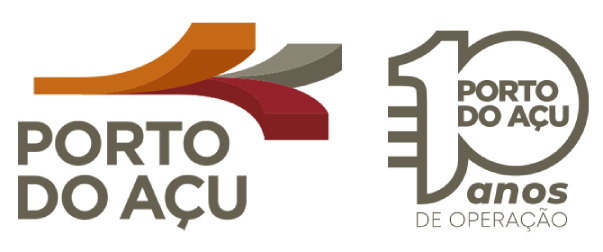Three of the 53 families who live in Vila da Terra were selected through a call of notice to supply food to public schools in São João da Barra. Açu Port, in partnership with the Brazilian Micro and Small Business Support Service (SEBRAE), backed the farmers throughout the whole bidding process and was present today for the first delivery of produce to the schools.
“Our main role is to support Vila da Terra rural producers in this process which is so new to them. Farmers are beginning to supply in large scale and our goal is to guide them as best as we can, so that everyone turns a profit, comes out satisfied and wishes to participate again in bidding rounds in the future, contributing to improve school food in our town. The idea is for them to expand and become stronger as a group,” explained Gleide Gomes, Social Responsibility Coordinator of Açu Port.
The three rural producers from Vila da Terra will supply pineapples, cassava, sweet potatoes and peppers until the end of the year, according to the call of notice. They also intend to participate in the next bidding rounds.
“I am very pleased to provide my produce to schools in São João da Barra because I will get a much bigger profit without depending on middlemen to sell what I plant. One kg of peppers, which is generally sold for one real to middlemen will get me five real as food for schools in this town. A big difference! And there is no greater joy than knowing that my produce will feed children in our region,” said Wagner Ivo da Silva, one of the winning farmers in the call of notice.
“It is very gratifying to know that we are producing for children in our region. I guarantee that this is high quality food. We do not use toxic substances. Another joy is to increase our output by having regular demand from schools. This year, I produced three tons of greens and legumes, but intend to expand to seven tons next year,” said Manoel Toledo, another farmer in Vila da Terra.
The will to expand and generate more income results from year-long efforts by the port, in partnership with SEBRAE. Vila da Terra producers are attending classes and workshops focused on cooperatives, entrepreneurship and developing a business vision.
“We check on Vila da Terra rural producers and their growth is visible. Farmers have learned how to be entrepreneurs and deal with farming as an actual business. Gradually, they are realizing that it is possible to turn a profit not only in retail. Hence our incentive to entrepreneurial behavior,” said SEBRAE analyst Fabrínio Gioffi.
In their first shipment, producers who live in the resettlement provided 100 kg of peppers, 330 kg of sweet potatoes and 600 kg of cassava, and additional deliveries are planned until year-end. There are plans for over 1,064 kg of peppers, 170 kg of sweet potatoes and 300 kg of cassava, in addition to 3,600 pineapples. More than 7,000 students will eat food supplied by Vila da Terra.
“The most noteworthy aspect of the school food program is that we are able to add nutritional value to the menu of local schools and, at the same time, bring our students closer to the local farming culture. In the last call of notice, we purchased fresh fruits and vegetables with excellent quality to introduce in the children’s diet. This is priceless,” said Jaqueline dos Santos Paes, a nutritionist in the São João da Barra Secretary of Education.
Vila da Terra
Vila da Terra is an area of about 1,000 hectares designated to families who were removed for the creation of the São João da Barra Industrial District. The location was designed in accordance with World Bank’s standards, the international benchmark in resettlements. The program is developed by the Port, in partnership with the Mayor’s Office and the Industrial Development Agency of Rio de Janeiro State (CODIN).
The soil in the area is favorable for agriculture and cattle grazing, supporting the continuation and expansion of rural productivity among producers who were resettled.
Residents of the village receive technical support and learn adequate techniques for growing and handling native and fruit trees that were planted in the area. They receive guidance on enhancing their crops with simple and affordable techniques developed especially for the type of soil and water found in the region.

